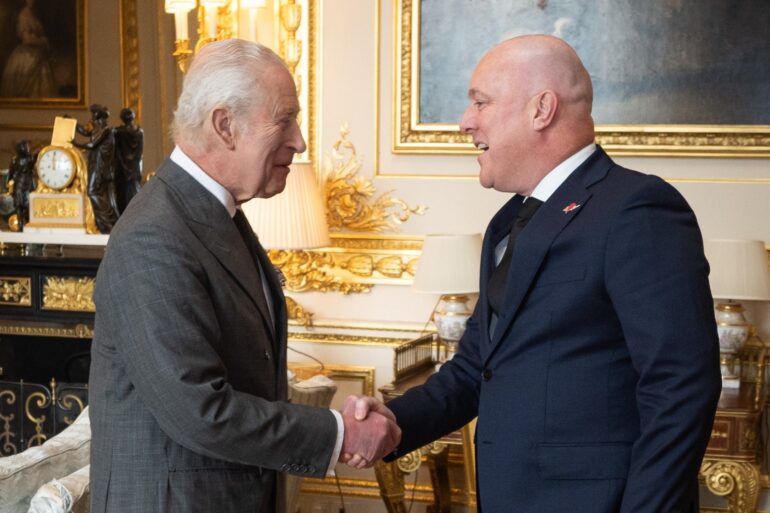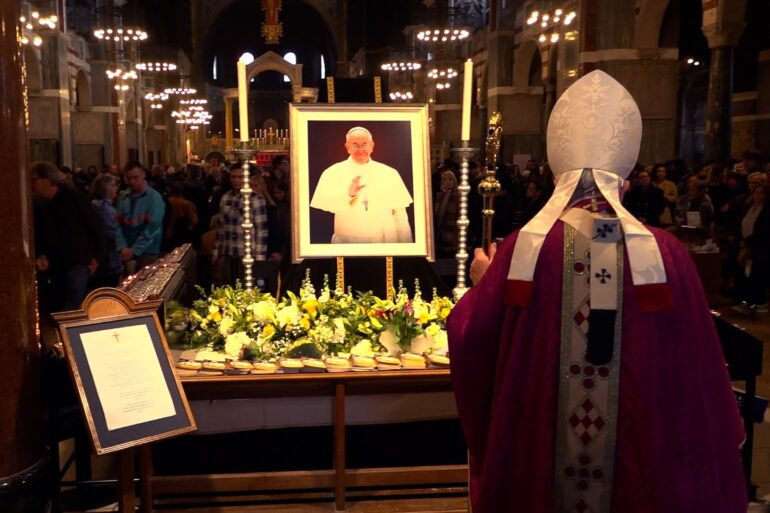-
 play_arrow
play_arrow
Kl 1 Radio Local radio for west Norfolk
-
 play_arrow
play_arrow
KL DISCO KL Disco Playing Disco Music from the 70's onwards.24/7
-
 play_arrow
play_arrow
KL COUNTRY KL COUNTRY Playing New and Classic Country Music 24/7
-
 play_arrow
play_arrow
KL ROX KL ROX The best of New and Classic Rock.24/7
-
 play_arrow
play_arrow
KL SUMMER Summer Vibes 24/7 from KL1 Radio across West Norfolk
-
 play_arrow
play_arrow
KL CLASSICAL Your Symphony Starts Here
-
 play_arrow
play_arrow
KL CHILL Just Chill!
-
 play_arrow
play_arrow
KL POP The Best POP Hits all day Long!
-
 play_arrow
play_arrow
KL XTRA KL XTRA
music_note
Gambling ads during Premier League opening weekend nearly triple, study shows

Gambling messages during the opening weekend of this season’s Premier League have almost trebled since last year – putting fans including children at risk, according to researchers.
They said the findings highlight the explosion of gambling marketing and how the industry’s current self-regulation is failing.
Leading experts and politicians are now calling on the Government to prioritise public safety and make tackling the issue a top goal.
The report, led by the University of Bristol, shows football fans are seeing gambling industry marketing across TV, radio and social media during live match coverage and related news reports.
Nearly 30,000 gambling messages were counted in total across these channels during a single weekend – almost triple the 10,999 recorded over the same period last year.
Co-lead author Dr Raffaello Rossi, a marketing researcher from the University of Bristol, said: “This new evidence shows how much the industry is out of control – with gambling ads now flooding Premier League coverage.
“It’s clear that the industry’s attempt to self-regulate is wholly inadequate and tokenistic.
“Despite having had years to put in place effective measures to protect consumers, the gambling industry continues to prioritise profit over safety.”
During live broadcasts of six Premier League matches, findings showed gambling messages, including logos and adverts shown during live matches, more than trebled from 6,966 at the same time last year to 23,690 this year – a 240% increase.
During the West Ham United v Aston Villa match, the researchers counted 6,491 gambling messages – equalling around 30 per minute.
In previous studies, gambling messages peaked at around 3,500 per match.
The Betting and Gaming Council said the introduction of a “whistle-to-whistle” ban on TV betting commercials during live sport before the 9pm watershed had seen a fall of 97% in the number of adverts seen by children.
Lord Foster of Bath, who chairs Peers for Gambling Reform, said: “These statistics reveal the woeful inadequacies of industry self-regulation.
“It is simply not good enough. The Government and the Gambling Commission must immediately act to reform gambling advertising, sponsorship and marketing.
“With political will, these reforms can be implemented now without the need for new legislation.”
Replicating last year’s investigation, a 10-strong team of researchers analysed around 24 hours of live match coverage.
This was 15 hours of Sky Sports News coverage, 15 hours of TalkSport radio broadcasts, and gambling advertising posted on Instagram, Facebook, and X from August 16-19.
The report revealed how gambling operators are using social media content marketing to reach large audiences, with material being viewed more than 24 million times.
The research team has reported more than 100 social media posts by major gambling brands to the Advertising Standards Authority (ASA) for investigation.
“Our research highlights the need for the Government to intervene and move beyond the industry’s voluntary measures, to fully ensure children and young people are protected,” co-lead author Dr Jamie Wheaton said.
Former England goalkeeper Peter Shilton, who experienced gambling problems himself, said: “Gambling advertising during football events has become relentless, and this study clearly shows just how out of control it has become in the UK.”
Sir Iain Duncan Smith, former vice chair of the Gambling Harms All Party Parliamentary Group, added: “This Government and the Gambling Commission must act swiftly to deliver regulation capable of meaningfully reducing exposure to gambling advertising and help save lives.”
A spokesman for the Big Step campaign said: “For every day the Government lets this continue, they too are complicit in the harm to so many young fans who just want to watch the game, not be lured into addiction. It must stop.”
A Betting and Gaming Council spokesman said the study had “fundamentally misunderstood” both advertising and its regulation.
“The previous government stated research did not establish a causal link between exposure to advertising and the development of problem gambling,” he said.
“Betting advertising and sponsorship must comply with strict guidelines and safer gambling tools and signposts to help for those concerned about their betting, are regularly and prominently displayed.
“BGC members already commit 20% of TV, radio and digital advertising to safer gambling messaging.
“Independent research by the Gambling Commission found there was a ‘significant decline’ in young people’s exposure to gambling advertisements last year, while the ASA found children are seeing fewer gambling adverts on TV.”
A spokesman for the Advertising Standards Authority said: “Protecting people from potential gambling advertising-related harm is an ever-present high priority for us.
“We’re constantly undertaking our own activity to monitor and tackle the minority of gambling ads that break our rules with a particular focus on the need to protect from being harmed or exploited children, young people and other vulnerable people.”
A Government spokeswoman said: “We recognise the impact harmful gambling can have on individuals and their families and are absolutely committed to strengthening protections for those at risk.
“Ministers are currently considering the full range of gambling policy, including on advertising and sponsorship, and will update in due course.”
Published: by Radio NewsHub
Similar posts
Upcoming shows

Ian Campfield – KL1 Afternoons
1:00 pm - 4:00 pm

Richard Dix – KL1 Drive
4:00 pm - 7:00 pm

80’s ’til 8
7:00 pm - 8:00 pm

Gary Steele – Rock Show
8:00 pm - 11:00 pm

Night Trax
12:00 am - 7:00 am
-

The UK and New Zealand are to pursue stronger defence ties and boost support for Ukraine

Catholics mourn merciful Pope after death aged 88 following stroke

Court hears of high street masturbation, man threatening train station worker and drug-drivers

Live Music – Man The Lifeboats

Breast of Friends Chairty Ball
Message Us
Copyright The Mediasite UK - 2025



